On the afternoon of November 7, National Assembly deputies discussed in the hall the draft laws: Law on Cyber Security; draft Law on Protection of State Secrets (amended).
Regarding the draft Law on Protection of State Secrets (amended), the deputies proposed to clarify the scope and criteria for classifying state secrets; and warned about the abuse of secret stamps to conceal information.
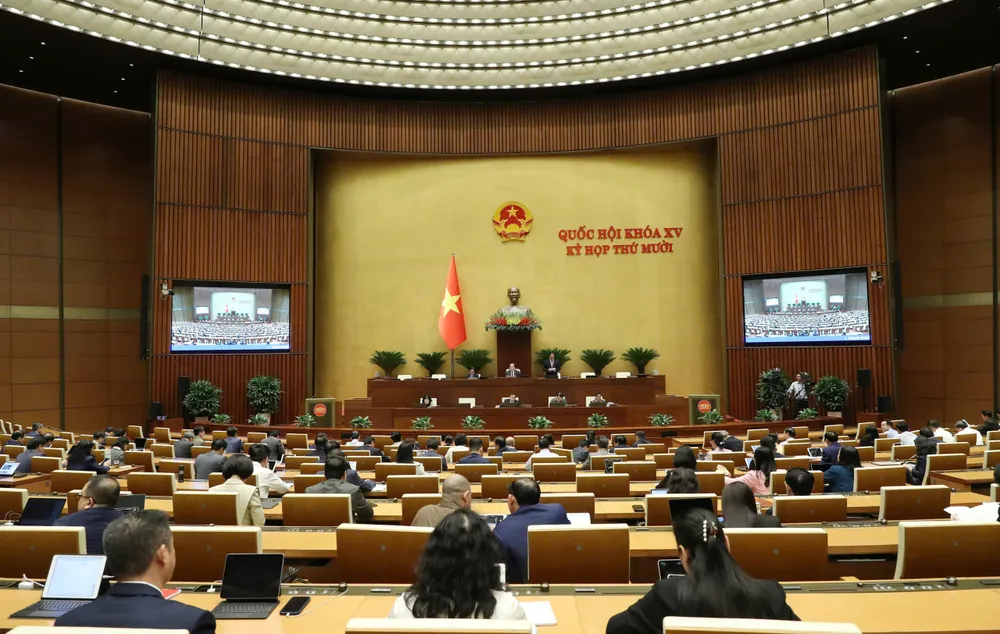
Delegate Pham Van Hoa ( Dong Thap ) agreed with the principle of protecting state secrets as stated in the draft law to increase responsibility for those assigned to stamp secrets.
Emphasizing further on prohibited acts in protecting state secrets, Deputy Pham Van Hoa said that we currently have three regimes for protecting state secrets: top secret, secret, and confidential. The Deputy said that it is necessary to ensure strictness, avoid abuse in stamping false secrets, "mistakenly stamping" secrets to conceal information, and putting information that is not in the correct secret category into documents stamped with secret stamps.
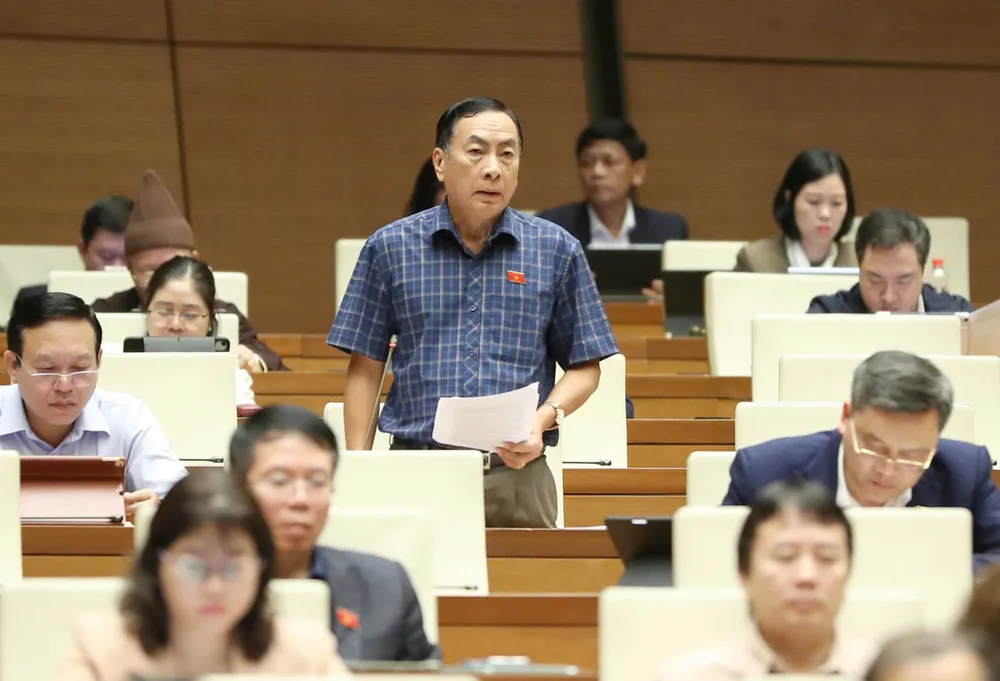
“In society, there can also be this case; the document is not confidential, but because they do not want the information to be disclosed, they stamp it confidential to keep it secret, hidden well, and not let anyone see it,” the delegate said and suggested that in stamping it confidential, the head of the unit needs to be highly responsible.
Deputy Pham Van Hoa also expressed concerns about the provisions on state secrets, in the draft law stipulating 13 contents: "There are things I propose to reconsider, these cases are marked as confidential information on the process of building rural and urban planning; financial planning information; information on press publishing, radio and television; information on hydrometeorology. There are contents that are marked as confidential, but are discussed publicly in the hall and are broadcast live on radio and television. These issues need to be reviewed," Deputy Pham Van Hoa suggested.
According to Deputy Pham Van Hoa, the act of taking state secret documents abroad or out of a secure place, if lost, will affect national security and is very dangerous. In this case, according to the Deputy, the opinion of the head of the agency or unit must be sought, whether it is a police agency or a military agency.
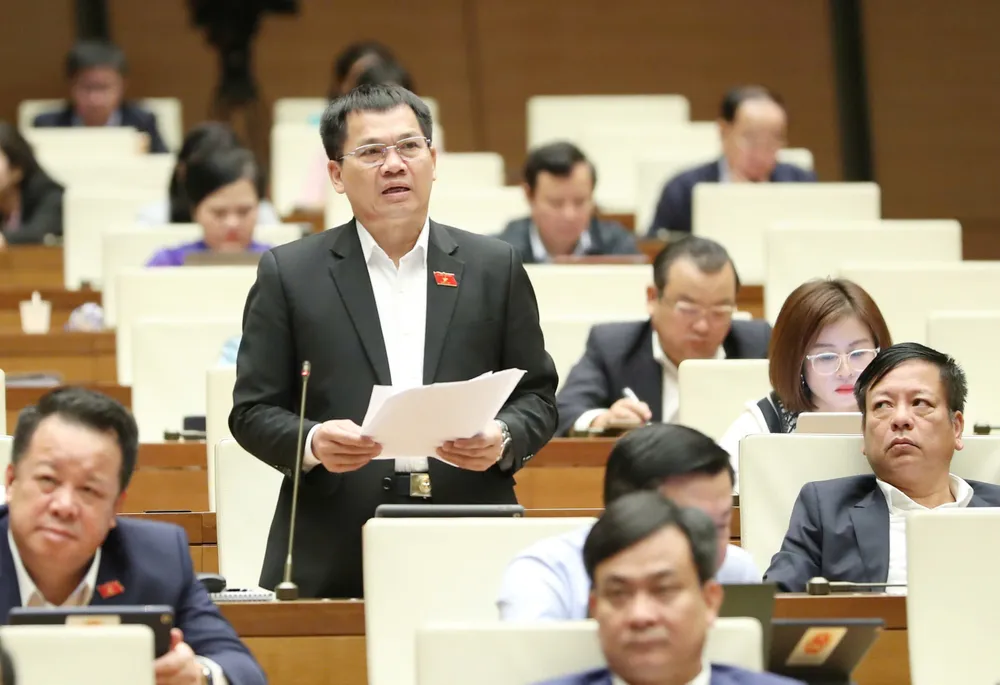
Contributing additional comments to the draft Law on Protection of State Secrets (amended), Deputy Duong Khac Mai (Lam Dong) said that in current practice, some civil servants and units are having certain confusion about determining state secrets and the level of secrecy of state secrets, especially in the issuance of administrative documents; there are still some contents that do not contain state secrets according to the list but are still shown by the level of secrecy mark; from there, the application of the law is sometimes not in accordance with the regulations.
Delegate Duong Khac Mai expressed his agreement with the addition of provisions stipulating that in cases of using state secrets by other agencies and organizations, the corresponding level of confidentiality must be determined according to the list of state secrets in the sector and field promulgated by the Prime Minister of the current Law on Protection of State Secrets.
In addition, to determine state secrets and the level of secrecy of state secrets accurately and in accordance with regulations, avoiding arbitrariness in determining the content of state secrets, the Lam Dong delegation proposed that when the Government provides detailed instructions on this law, it should have strict, clear and easy-to-apply regulations in practice.
“Currently, we are implementing a two-level local government model, many tasks and authorities regarding the protection of state secrets are assigned to the commune level; along with increasing authority and responsibility, it is necessary to invest in facilities, equipment, technology and funding to properly perform the assigned tasks; therefore, I suggest that in the process of organizing law enforcement, we need to pay attention to investing and supplementing funding to properly perform the task of protecting state secrets right at the grassroots level,” Deputy Duong Khac Mai suggested.
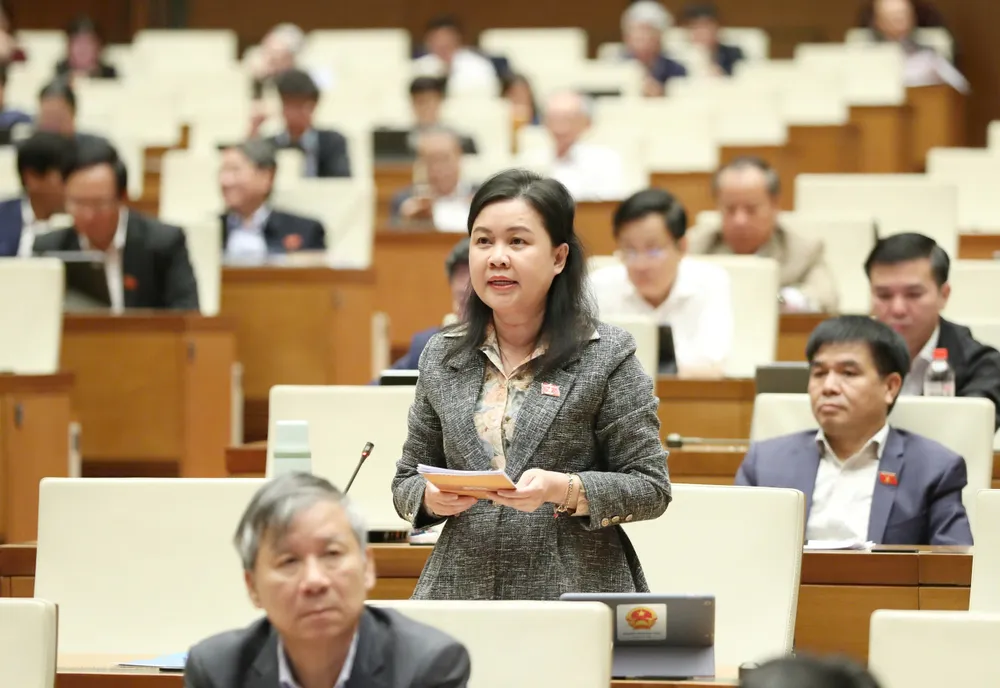
Deputy Nguyen Phuong Thuy (Hanoi) said that Article 7 of the draft law stipulates the scope of state secrets as the limit of important information that has not been made public. According to her, if it is revealed or lost, it can cause harm to national interests. Although this is a core criterion that is very correct in principle. However, when applied, many agencies tend to choose the option of closing the secret to be sure because there are no quantitative criteria, no specific instructions to distinguish which secrets need to be protected, which information needs to be made public to what extent it is considered to be harmful.
“There is a lack of sanctions for abuse of current laws, and no clear legal consequences for cases of intentionally stamping confidential documents incorrectly. Or using confidential documents to conceal information, avoiding explanation when stamping confidential documents incorrectly. If not handled, the abuse will continue to exist,” said Deputy Nguyen Phuong Thuy.
Source: https://www.sggp.org.vn/tang-trach-nhiem-doi-voi-nhung-nguoi-duoc-giao-dong-dau-mat-post822308.html








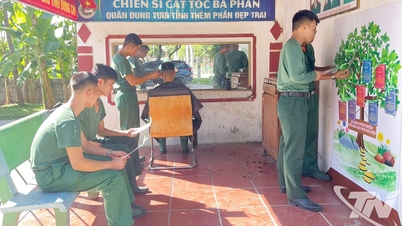





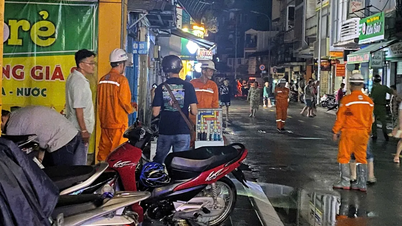
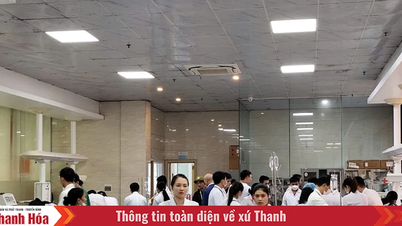







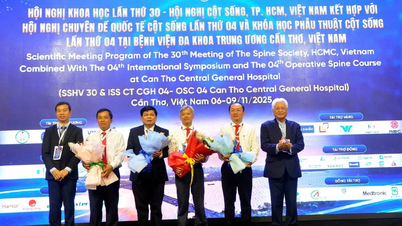
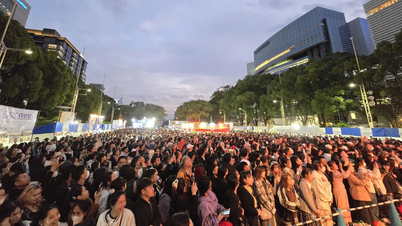



![[Photo] Cutting hills to make way for people to travel on route 14E that suffered landslides](https://vphoto.vietnam.vn/thumb/1200x675/vietnam/resource/IMAGE/2025/11/08/1762599969318_ndo_br_thiet-ke-chua-co-ten-2025-11-08t154639923-png.webp)










![[Video] Hue Monuments reopen to welcome visitors](https://vphoto.vietnam.vn/thumb/402x226/vietnam/resource/IMAGE/2025/11/05/1762301089171_dung01-05-43-09still013-jpg.webp)



























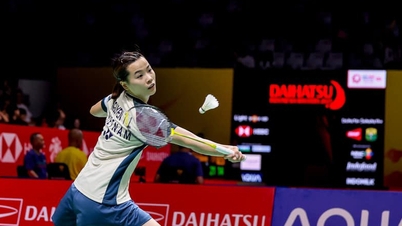


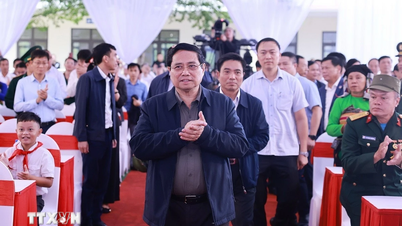








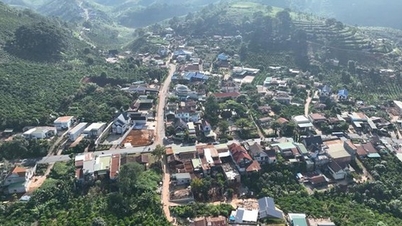




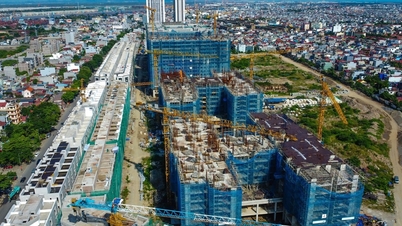




![Dong Nai OCOP transition: [Part 2] Opening new distribution channel](https://vphoto.vietnam.vn/thumb/402x226/vietnam/resource/IMAGE/2025/11/09/1762655780766_4613-anh-1_20240803100041-nongnghiep-154608.jpeg)














Comment (0)